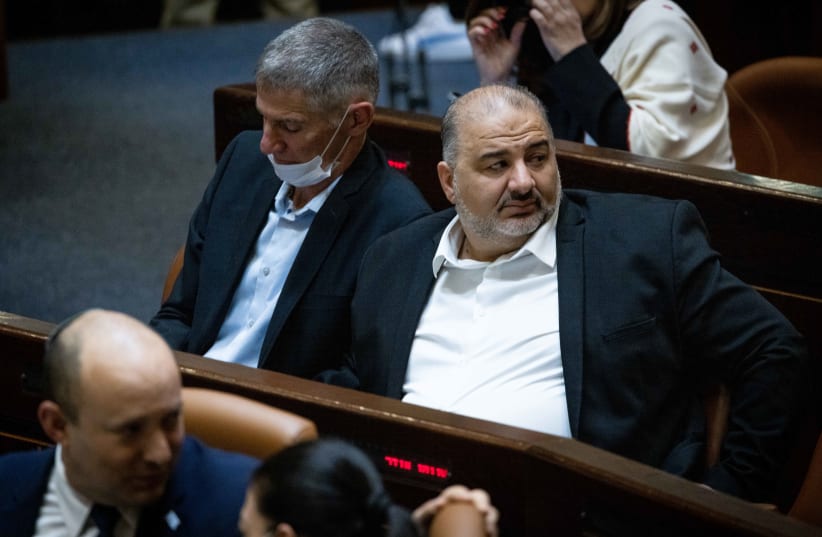In a bad omen for Prime Minister Naftali Bennett’s government, a special meal with entertainment for coalition politicians and their spouses that was set for Friday was canceled because there were not enough Knesset members willing to attend.
Pep rallies in the coalition were held before the Knesset returned from a recess since the government was formed. The Knesset will return from its spring recess on Monday, with greater challenges, due to the shift of coalition chairwoman Idit Silman to the opposition.
Silman refused in an interview on Channel 12 on Monday night to reveal how she will vote. She apologized to Yamina voters and denied that she received a reserved slot on the Likud list in return for her defection.
“I gave this government a chance but I made a mistake,” Silman said. “My dreams were to be head of the coalition and head of the Knesset Health Committee. I could have received any post I wanted in the current government. But I went with my heart, with all my might. I did not break. I listened.”
Silman said more rebels would soon follow.
“The next in line is just a matter of time,” she said. “This government is living on borrowed time. The train has left the station.”
The coalition started its first sanction against Silman on Monday, asking for her to be vacated from the large office she has next to Bennett’s.
United Torah Judaism leader Moshe Gafni, who opposes initiating elections, met with opposition leader Benjamin Netanyahu on Monday and tried to persuade him to enable someone else on the Right to form a government in the current Knesset.
“There are 70 MKs who agree with the policies of the Right,” UTJ MK Yitzhak Pindrus told the Knesset Channel. “A new government needs to be formed from within the current Knesset.”
Asked who would be prime minister, he switched from Hebrew to English and said, “Who cares?”
A new poll taken for the Israel Democracy Institute asked about the public’s preferences if the government would further lose its majority in the Knesset.
The poll found that 35.1% favor holding new Knesset elections, 28.9% prefer continuing with the current government as a minority government with some opposition party providing external support on certain issues, and 32.3% would want a new government to be formed in the current Knesset without elections being held. The remainder, 3.7%, gave other responses.
Among Jewish respondents, a new government in the current Knesset was the most popular response. Among Arabs, elections were overwhelmingly preferred.
Both Jews and Arabs deemed the likelihood that the current government could last at least until the end of the year “quite low.”
Asked to rate Bennett’s policies for dealing with the security events of the last month with five being excellent and one being very poor, 10.3% of the public deemed them excellent, 20% gave them a four, 20.3% a three, 15.6% two and 29% one.
Arab respondents overwhelmingly gave Bennett the lowest score while results among Jews were mixed.
When asked how they feel about Israel’s security situation in the foreseeable future, 37.7% declared themselves optimistic, 57.7% pessimistic and 4.6% declined to respond or said they did not know. Arab respondents were more pessimistic than Jewish respondents.
The poll of 601 men and women constituting a representative national sample of the entire adult population of Israel aged 18 and older had a reported maximum sampling error of ±3.65%.

